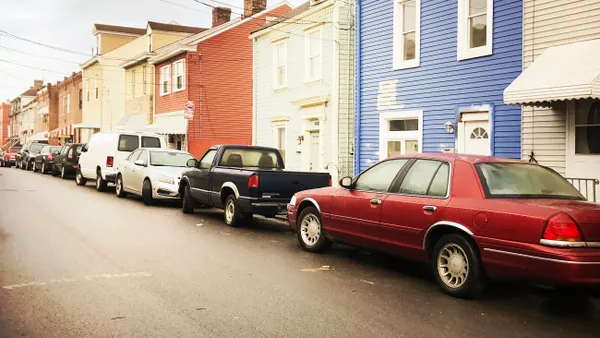Dive Brief:
- If smart cities across the country are to be successful and inclusive, they will need to emphasize workforce development and public-private partnerships (P3s), three lawmakers said at an Axios-hosted event Thursday morning in Washington, DC.
- U.S. Sen. Catherine Cortez Masto, D-NV, discussed legislation including her Code Like A Girl Act and the Safe Drone Act, which both contain provisions for educating people on new technology.
- In a separate conversation, Rep. Darrell Issa, R-CA, bemoaned that government is at the "trailing edge of technology," and argued that at all levels, it should encourage P3s to spark innovation and allow the industry to lead and drive down any costs associated. Issa is a co-chair of the Congressional Smart Cities Caucus alongside Rep. Yvette Clarke, D-NY.
Dive Insight:
Cortez Masto said it is imperative to ensure education keeps up with the innovations in technology so the workforce can adapt and learn how it works and how to innovate themselves. "It’s not just about smart cities, it’s smart communities," she said, referring to the need to make citizens smarter as well as the physical places where they live. "We want to make sure that as we move forward in embracing this technology, that we bring that workforce with it and we’re giving them the opportunity to go and learn the new tech or trade or get that certificate or go to those colleges to get the education they need to be a part of this new technology,” she added.
Legislation such as the Code Like A Girl Act looks to start that education early. Using a grant program through the National Science Foundation (NSF), it incentivizes girls to get involved in coding, software development and Science, Technology, Engineering and Math (STEM). Cortez Masto said it "focuses on how we take a look at this younger generation, particularly girls, and get them excited about coding and programming. To me, that generation is the future of the use of this technology."
Meanwhile, Clarke said education must continue among older generations, too, including her colleagues in Congress. She said one of her major hopes for the Congressional Smart Cities Caucus is that it can help in "bridging that inter-generational divide" with legislators who do not trust technology and the good it can bring to people’s lives.
P3s are beginning to take hold at the local level as cities look to become smarter, especially in infrastructure fixes, urban logistics and transportation. And with Canada’s federal government collaborating with two provincial governments and the private sector on 5G test beds, Issa said the United States must catch up and learn the lessons of the development of the Internet, which was driven by the private sector. "P3s are all about not writing purchase orders, but writing an authorization allowing others to innovate and giving them a way to monetize it," he said. "That’s what made the Internet the success it is."
Issa said P3s are far more successful than mandates handed down by the federal government, as they focus on “empowering” businesses. He pointed to the success of the EnergyStar scheme, which encourages technology companies to use less energy in their products and receive certification from the government for doing so. He said it was "100% industry-driven. To get an EnergyStar sticker you comply, but there’s no absolute mandate. The federal government and the Environmental Protection Agency said, 'We’re let the industry lead this down by setting standards and reaching goals.’”











